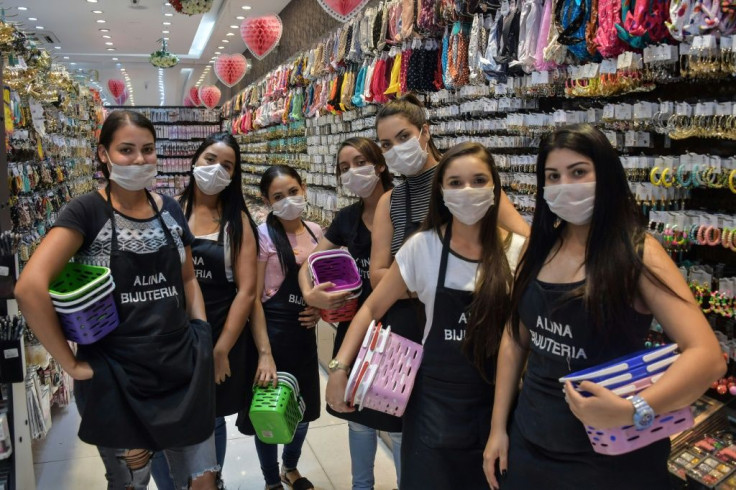Brazil Stocks Dive, Currency Closes At New Record Low
The Sao Paulo stock exchange closed down 13.9 percent Monday and the Brazilian real weakened to above five to the dollar for the first time ever in further fallout from the coronavirus pandemic.
The stock exchange's Ibovespa index closed at its lowest level since June 2018, while the real was 5.04 to the dollar, on yet another day of carnage for world markets panicked by the economic impact of the pandemic.
The stock exchange halted trading early in the day when stocks plunged more than 12 percent, triggering the automatic circuit breakers that temporarily suspend activity during massive sell-offs.
The 30-minute pause -- the fifth time trading has been halted in a week -- did not stop the slide.
The Ibovespa has now lost 27 percent since March 6, and 40 percent since it hit its all-time high on January 23, the day the spreading outbreak led China to place Wuhan province under quarantine.

Brazil is closely tied to China, its largest trading partner, and also highly sensitive to global market swings.
The latest rout in Sao Paulo followed the trend set in Asia and Europe, where traders' panic only increased after the US Federal Reserve decided to slash interest rates to almost zero in a bid to boost growth.
Domestic concerns were also in play in Brazil, where analysts polled by the central bank lowered their 2020 economic growth forecast to 1.68 percent, down from 2.23 percent four weeks ago.
The biggest losers included airlines Azul and Gol, which closed down 36.9 percent and 28 percent, respectively, and travel company CVC, which closed down 32.3 percent.
The Brazilian real, meanwhile, lost 4.5 percent to close at a new record low.
That could further damage the brand of President Jair Bolsonaro's free-market guru, Economy Minister Paulo Guedes, who had said early this month that the real would only crash through the five to the dollar mark "if we really mess up."
© Copyright AFP 2024. All rights reserved.







